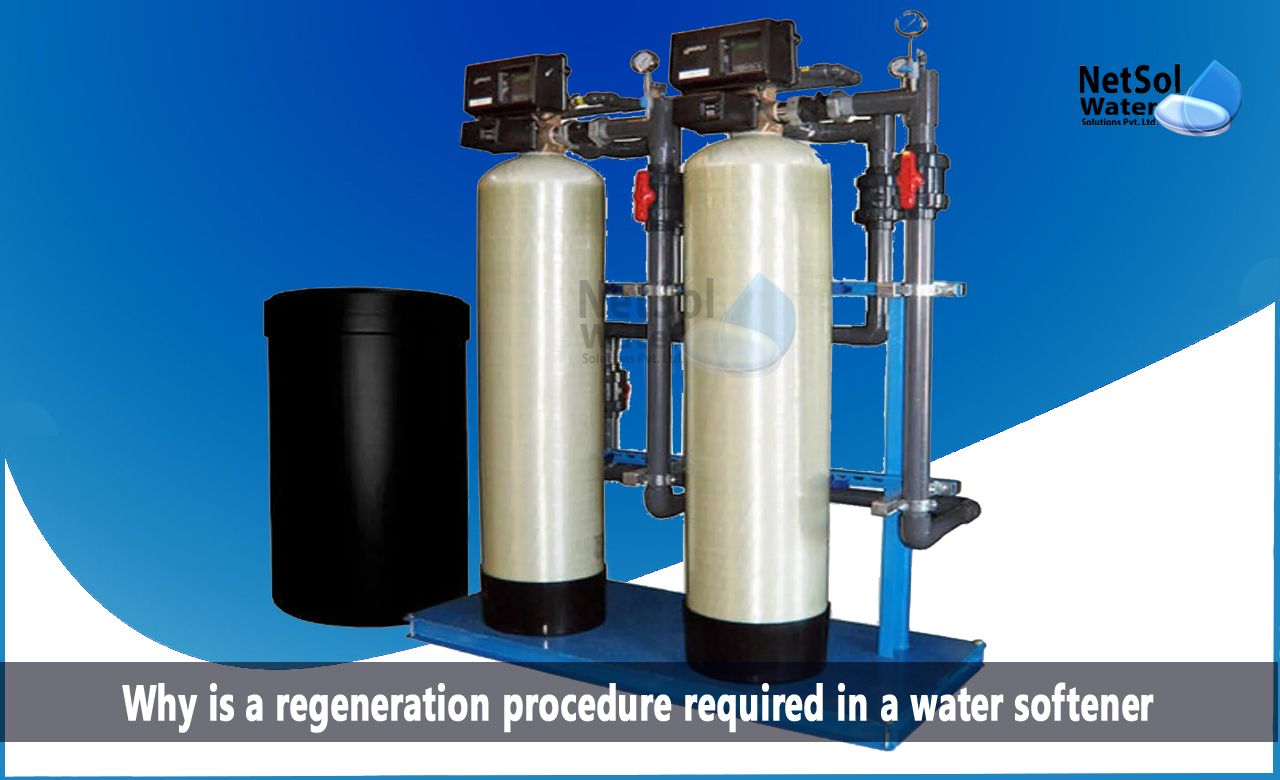Despite the fact that the regeneration process consumes a significant amount of water, it allows you to lower your water usage. You may waste part of this water if you continue to utilize hard water that hasn't been softened.
Hard water can also cause damage to household appliances, which can be costly to replace. Installing a water softener in your home ensures that the water never leaves mineral deposits on your glasses, or soap residue on your hands after they've been washed.
Why is a regeneration procedure required in a water softener?
When the magnesium and calcium minerals come into touch with the resin beads, they are held in place, causing them to accumulate around the beads in question. The regeneration process is intended to clean the beads on a regular basis, to guarantee that the water softener continues to function properly.
During the regeneration process, the resin beads in the water softener are inundated with saltwater, ensuring that the hardness minerals are removed from the resin beads and discharged into a nearby drain. Now that the resin beads have been cleansed, the water softener may resume normal operation. The regeneration cycle usually happens once a week.
The process of regeneration
The water softening regeneration process is divided into five steps, each of which involves the application of salt brine to the resin beads, in order to effectively eliminate all of the accumulated hardness minerals.
The five major stages of this process are as follows:
- Fill - A salt storage container is included with the water softener. To begin the regeneration process, water will be pumped directly into the storage container, where the salt will dissolve and form a brine solution. A brine solution is required if the water is to be able to remove the hardness minerals, which have accumulated on the resin beads.
- Brining - The brine solution is transferred from the salt storage tank to the resin tank, which houses the resin beads, during the brining stage of this operation. The salt brine will pick up the hardness minerals at this step of the process.
- Brine rinse - The brine valve will close once a specified amount of the brine solution has been utilized, for the regeneration process. The water will then continue down the same course, but without the brine solution. The minerals and brine are properly drained from the resin tank, to a neighbouring drain.
- Backwash - During this step of the regeneration process, water is forced upwards and into the big resin tank at a faster flow rate, assisting in the removal of residual sediments, iron, and filth from the system.
- Fast rinse - Following the completion of the backwash operation, a fast rinse will take place, with water flowing quickly down the resin tank. Any remaining brine in the tank's lower portion will be scooped up by this water, and carried through the resin beads, ensuring that the brine adheres to the beads. Only when this stage is completed can the water softener resume its normal softening procedure.
A salt brine solution, which is a simple combination of salt and water, is the principal treatment employed during this process. When done correctly, the regeneration process usually takes about two hours.
How long does it take a water softener to regenerate?
The majority of water softeners are programmed to start the regeneration process at 2 a.m., which indicates that it will most likely end around 4 a.m. It is critical that the regeneration process occurs at this time because the household will most likely not be utilizing any water.
The interval between regenerations is determined by household water demand, and overall water hardness levels.
Conclusion
You can dramatically increase the lifespan of your water softener with just a little work, allowing you to reap the rewards of soft water for a very long time. Making the appropriate decision when choosing a water softener for your home or business, will assist assure the long life of the water softener. Netsol Water water softeners are designed to give you high-quality water always, without requiring a lot of maintenance.
For better solutions for water and wastewater treatment, we provide a wide variety of items, many of which can be altered to suit the demands of our clients. We can provide solutions that are both inexpensive and trouble-free.
Netsol Water is Greater Noida-based leading water & wastewater treatment plant manufacturer. We are industry's most demanding company based on client review and work quality. We are known as best commercial RO plant manufacturers, industrial RO plant manufacturer, sewage treatment plant manufacturer, Water Softener Plant Manufacturers and effluent treatment plant manufacturers. Apart from this 24x7 customer support is our USP. Call on +91-9650608473, or write us at enquiry@netsolwater.com for any support, inquiry or product-purchase related query.



